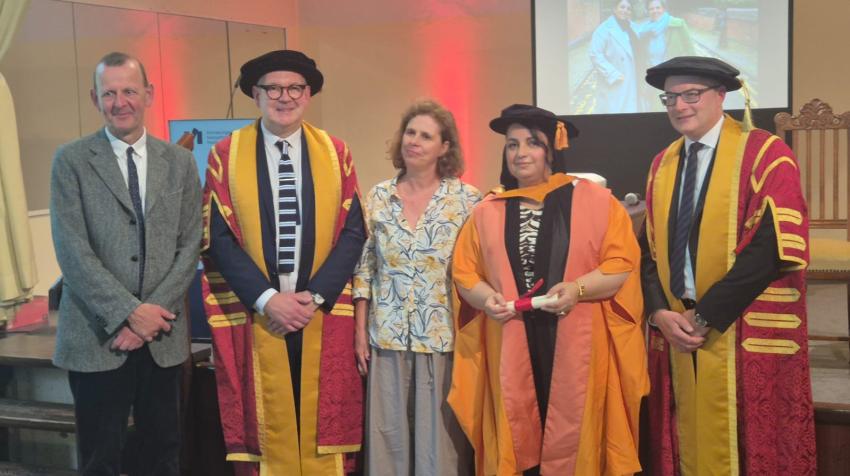UNESCO estimates that over 1.5 billion students in 165 countries are out of school due to the COVID-19 pandemic. The pandemic has forced the global academic community to explore news ways of teaching and learning, including distance and online education. This has proved challenging for both students and educators, who have to deal with the emotional, physical and economic difficulties posed by the illness while doing their part to help curb the spread of the virus. The future is uncertain for everyone, particularly for millions of students scheduled to graduate this year who will face a world crippled economically by the pandemic.
In the COVID-19 and higher education series, UNAI talks to students, educators and researchers in different parts of the world to find out how COVID-19 has affected them and how they are coping with the changes. The series also aims to highlight the lessons learned and potential positive outcomes of the global lockdown for higher education.
Marina Romanova is an undergraduate student of International Relations at the Lomonosov Moscow State University in Russia. The COVID-19 outbreak began in the middle of her exchange program in Switzerland and she was forced to leave the country and return to Russia due to the uncertainty of the situation.
Despite the stress created by the pandemic, Marina is grateful that she and her parents are healthy, and she has the tools necessary to continue her studies remotely. Her classmates in Russia had to go through a much more challenging time, as Moscow State University did not have online learning platforms prior to the lockdown. However, the situation is improving, and new platforms are being developed for the students.
Marina is scheduled to graduate next year, but the pandemic has made her future uncertain as it is now more difficult to travel overseas and to do an internship or pursue a master’s degree. Marina has been able to find the positive aspects of the pandemic, saying the quarantine has helped her study habits and she has developed a deeper understanding of the interconnectedness of the world and the importance of good healthcare systems for citizens. Listen to the full interview with Marina here.
Additional Resources:
- United Nations: COVID-19 Response
- UNESCO: COVID-19 Response and Resources
- UNESCO: Global Education Coalition
- World Health Organization (WHO): Coronavirus Disease (COVID-19) Pandemic
- International Labour Organization (ILO): COVID-19 and the World of Work
- UN Volunteers: Volunteer for the COVID-19 Pandemic Response




